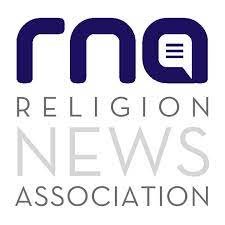Departing RNS Editor to Be Honored With Lifetime Achievement Award
By Kevin Eckstrom, Religion News Service
In 1976, Catholics from around the world descended on Philadelphia for an Eucharistic Congress convention, and the big draw was a nun from Calcutta named Mother Teresa.
David E. Anderson
Few people noticed a bishop from Krakow, Poland, named Karol Wojtyla.
Looking back, veteran religion reporter David E. Anderson says perhaps he should have paid more attention to the Polish prelate, who two years later was elected as Pope John Paul II.
"There were probably some people who knew he was a comer, but I wasn't one of them,'' joked Anderson, who is departing next month as editor of Religion News Service after three decades of religion reporting.
Before he leaves journalism full time, Anderson, 63, will be honored with the William A. Reed Lifetime Achievement Award from the Religion Newswriters Association at its annual convention (Sept. 9-12) in Washington. The award is named after Reed, the first African-American member of the association and longtime religion writer for The (Nashville) Tennessean. Previous winners include Willmar Thorkelson of the Minneapolis Star, Helen Parmley of The Dallas Morning News and Richard Philbrick of the Chicago Tribune.
With his encyclopedic knowledge of religion and keen sense of the news, Anderson is widely recognized as a pioneer who helped set the standard for reporting on a subject that touches nearly every aspect of the news.
Anderson is moving with his family to Plentywood, Mont., population 2,061, where the "sky is big, bright and beckoning.'' He will continue with RNS as a senior editor and as a consultant to the PBS television show, Religion and Ethics NewsWeekly.
He started out as a copy boy at his hometown Minneapolis Star and Tribune before arriving in Washington in 1965. At the University of Minnesota, Anderson had a "glancing acquaintance with higher education,'' where classmates included musical legend Bob Dylan and storyteller Garrison Keillor.
Anderson joined United Press International in 1967 and was its lead religion writer from 1974-1991. Anderson joined RNS as its Washington correspondent in 1992 and was promoted to editor in 1997.
David Briggs, religion reporter for The (Cleveland) Plain Dealer, competed with Anderson as religion reporter at the Associated Press. He said he continues to be amazed by Anderson's longevity on the beat. "Those who share this work with us for a few years are forever touched by it,'' Briggs said.
"Those who devote a lifetime to religion journalism, like David Anderson, forever touch all of us.''
Over the years, Anderson has covered three popes, seven presidents and "too many'' church conventions, he said with a laugh. Memorable stories include the Episcopal Church's decision in 1976 to ordain women, the Catholic bishops' 1983 pastoral letter on peace and interviewing South African Archbishop Desmond Tutu. "He was, and still is, one of the most delightful and profound people I've ever met,'' Anderson said.
Anderson is perhaps best known for his self-deprecating wit and low-key style. In the winter months he dusts off his favorite black beret, and his signature wisp of a ponytail might reappear in Montana as he settles into a routine of writing poetry on the wind-swept prairie.
"David had no pretense in looking sharp and well-groomed and neatly dressed,'' said John Dart, now news editor for The Christian Century magazine and former longtime religion reporter for the Los Angeles Times. "But that just put you at ease, knowing that here was a journalist who was all journalist, with no pretension about appearance or dress.''
Deborah Howell, bureau chief for Newhouse News Service, RNS' parent company, agreed. "He takes religion very seriously but has never taken himself too seriously, which makes him a terrific editor,'' she said.
One thing that Anderson does take seriously is social justice concerns, particularly the "grossly underreported'' story of American poverty and ongoing humanitarian crises in Iraq and Sudan.
He is also concerned about a "coarsening'' of American public discourse and politics, and the ongoing tendency to "focus on strife'' as faith communities battle over gender and sexuality while other issues go untouched.
"But on a day-to-day level, a lot of people are committed to living faithful lives that do justice to one another and try to overcome the hurts and brokenness in the world,'' he said, pausing. "And we forget that sometimes.''
###

